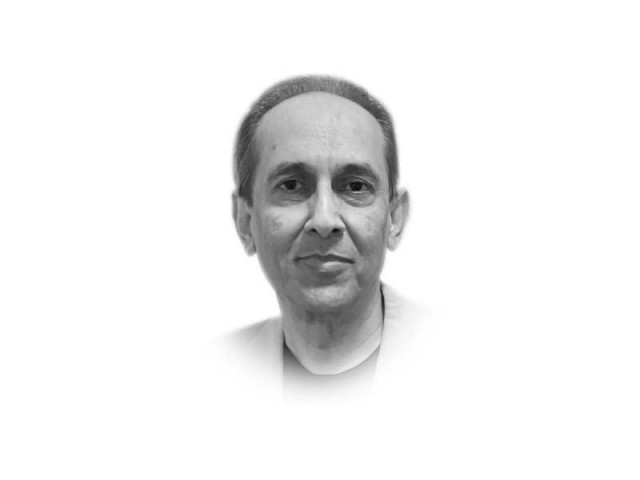Truth or happiness? If you have to choose…
Confirmation bias is not restricted to politics

I was born and raised in Pakistan. The thought fills me with pride. Pakistan is a stunning landscape. The Swiss Alps pale in comparison to the chimeric infusion of beauty and charm that defines the Hunza Valley and the snow-capped peaks that cradle the Deosai National Park. The pink sandy beaches of the Bahamas can put anyone into a trance, but they are no match for the breathtaking shores that stretch from Sandspit to Hawke’s Bay in the southern port city of Karachi. The quirky villages of Punjab beaming with verdure and folklore. The quaint and idyllic landscape of Baluchistan. The splendour is timeless; the beauty sacrosanct. But here is the question. Why do I think Pakistan is the most beautiful country in the world? Is it because I was born and raised in Pakistan? Am I simply being self-centred? What if I were born and raised in Ireland? Or Morocco? Or India? What if I were a Catholic or a Buddhist?
Cognitive bias is an unconscious bias that, according to Britannica, causes a systematic error in the way we think or reason about the world because of our subjective perception of reality. Confirmation bias, a type of cognitive bias, is our tendency to process, interpret, or seek information that is consistent with our existing beliefs and ignores information that is inconsistent with them. We are susceptible to confirmation bias because it’s easy and efficient. It also helps us feel important and maintain our self-esteem.
Let’s see how it works. Let’s say, you’re watching a current affairs talk show on Pakistani TV. The anchor brings in analysts from two different political parties. Instead of seeking evidence and doing an unbiased factual analysis of what is being discussed, you will most likely side with the analyst who supports your party, and you will reject the views of the analyst from the other party. Now, let’s assume that the leader of your political party, Bilawal Bhutto or Imran Khan or Maryam Nawaz, gets arrested on charges of corruption. “It is politically motivated,” you shout. Further, you will tend to believe in any evidence that will get your leader acquitted and you will reject any evidence that can get him or her convicted.
Confirmation bias is not restricted to politics. Here is a case scenario taken from an article in American Family Physician Journal. A female patient goes to a doctor’s office. She is obese and has diabetes for which she is receiving treatment. The doctor notices an erythematous ring (red rash) in her armpit. He concludes that she has Intertrigo (redness caused by skin-to-skin friction that happens usually under the breasts or skinfolds). He prescribes her a cortisone/antifungal ointment. The doctor goes on vacation for a few days. When he returns, he finds a note from a rheumatologist whom his patient has seen while he was on vacation. The note states that his patient is diagnosed with Erythema Migrans, that an initial Lyme titer has been positive, and that treatment for Lyme disease (a bacterial illness caused by a tick bite) has been initiated. How can a doctor miss an actual diagnosis? Lucky guesses or educated guesses (from experience and consultations) work most of the time. But medical errors are not very uncommon. Diagnostic errors can result from availability bias (what comes to mind most easily or readily) or confirmation bias (the tendency to give greater weight to data that support a preliminary diagnosis). Cognitive bias, as explained in Bias in Medicine (Journal of American College of Cardiology), occurs when intuitive thinking is used to reach conclusions about information rather than analytic thinking.
Let’s explore three examples. Example 1. Let’s say you believe that left-handed people are more creative than right-handed people, and you happen to meet an innovative artist or an architect who is left-handed, you will instantly break into a smile because this fact simply confirms your pre-existing belief. (Leonardo da Vinci was left-handed). Example 2. If I ask you to give me the next three numbers in the sequence: 2, 4, 6, chances are you will give me: 8, 10, 12. Your answer is based on the assumption that this is a sequence of even numbers in ascending order. But what if the rule for this sequence is adding two preceding numbers to get the next number? Then the answer would be: 10, 16, 26. What if this is simply a sequence of numbers, even or odd, in the ascending order? (Check out the Black Swan Theory). Example 3. Recently, when four missing children survived their 40-day ordeal in the Colombian rainforest, people across the world joyously declared it “a miracle of God.”
In politics, religion, society, and even science, our judgements are obfuscated by cognitive biases. We are prevented from making decisions based on rationality and critical thinking. “My country is the most beautiful country in the world.” “My religion has the most powerful message for all humanity.” “My language is the most romantic language.” “My political party is the only party that will fight for the rights of the people.” These are biases wired into my brain. They keep me relevant. They make me feel important. They make me happy.
So, truth or happiness? If you have to choose…
Published in The Express Tribune, July 2nd, 2023.
Like Opinion & Editorial on Facebook, follow @ETOpEd on Twitter to receive all updates on all our daily pieces.















COMMENTS
Comments are moderated and generally will be posted if they are on-topic and not abusive.
For more information, please see our Comments FAQ